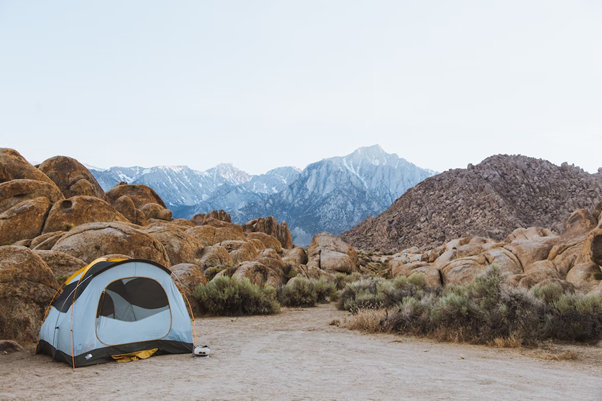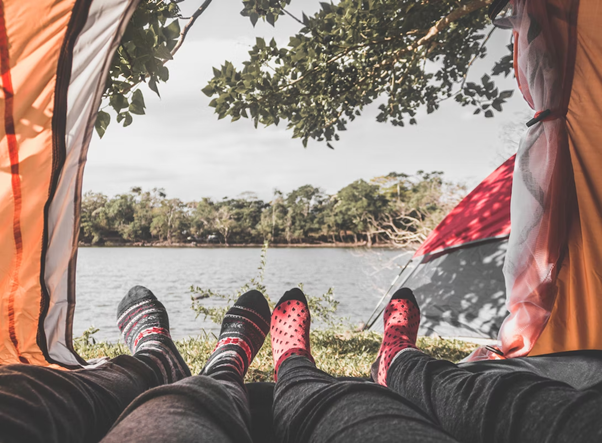When you go camping, one of the most important pieces of gear you’ll need is a tent. But with all the different options on the market, it can be tough to choose the right one for your needs. This guide will help make the process a little easier, by outlining key factors to consider when selecting a tent and providing tips for finding the perfect model for your next camping trip.

1. Read Online Reviews
One of the best ways to get insights into a particular tent model is to read online reviews. Look for sites that provide both positive and negative feedback about the tents they’ve used, so you can get a well-rounded perspective. Also, be sure to take note of any common issues that are mentioned repeatedly. This can help you avoid problems down the road. By reading this tent buying guide, you can get a better understanding of what to look for in a quality tent. Additionally, you can check out the top-rated camping tents, based on customer reviews.
2. Consider the Size
When choosing a tent, it’s important to consider how many people will be using it and what type of sleeping arrangements you’ll need. Most tents are designed to accommodate between two and four people, but there are also larger models that can sleep up to eight or more. If you frequently go camping with a large group, then a bigger tent may be a better option. When it comes to sleeping arrangements, most tents have either one or two rooms. One-room tents are great for couples or small families, while two-room models offer more privacy and can also be used as storage space during the day. Additionally, some tents have a screen porch or other type of vestibule, which can be useful for storing gear or keeping your shoes dry.
3. Consider the Seasonality
Another important factor to consider when choosing a tent is the seasonality. Are you planning on using the tent year-round, or just during certain times of the year? Most tents are designed for three-season use, meaning they can handle spring, summer, and fall weather conditions. However, there are also four-season tents that are built to withstand winter weather, including heavy snow and high winds. If you plan on doing any winter camping, then a four-season tent is a good option. And, if you live in an area with a lot of extreme weather conditions, then it might be worth investing in a tent that can handle whatever Mother Nature throws your way.
4. Consider the Setup
When it comes to tents, there are two main types: freestanding and non-freestanding. Freestanding tents can be set up on any type of surface, including dirt, sand, and grass. They’re also easy to move around, so you can find the perfect spot for your campsite and spend quality time with your family. Non-freestanding tents, on the other hand, need to be staked into the ground in order to stay upright. While they can be more challenging to set up, they tend to be lighter weight and easier to pack.
5. Consider the Weight
If you’re planning on backpacking with your tent, then the weight is an important factor to consider. The lighter the tent, the easier it will be to carry. However, lightweight tents often come with some sacrifices, such as a smaller interior or fewer features. When deciding how much weight you’re willing to carry, consider how far you’ll be hiking and whether you’ll be carrying other gear as well. Additionally, some tents come with a rain fly, while others do not. A rain fly is an extra piece of fabric that covers the top of the tent and helps to keep the interior dry during rainy weather. If you’re planning on doing any camping in areas with a lot of rainfall, then a tent with a rain fly is a good option.
6. Consider the Price
Of course, one of the main factors to consider when choosing a tent is the price. Tents can range widely in price, from around $100 to $500 or more. When deciding how much to spend on a tent, consider how often you’ll be using it and what type of features you need. If you only go camping once or twice a year, then you probably don’t need to spend a lot of money on a top-of-the-line model. However, if you camp frequently or in extreme weather conditions, then it might be worth investing in a higher-quality tent.
7. Consider the Extras
In addition to the basic features, there are also some optional extras that you might want to consider when choosing a tent. For example, some tents come with built-in storage pockets or loops where you can hang lanterns or other gear. Additionally, some models include an e-port, which is a hole that allows you to run an extension cord from an electrical outlet into the tent so you can use devices like phones and laptops. If you think you’ll need any of these features, then make sure to look for a tent that offers them.
8. Consider the Warranty
Last but not least, when purchasing a tent, it’s also important to consider the warranty. Most tents come with a one-year warranty, but some companies offer longer warranties for an additional cost. If you plan on using your tent frequently or in extreme conditions, then it might be worth paying extra for a longer warranty. That way, if anything goes wrong with the tent, you’ll be covered. Additionally, some companies offer repair or replacement services for tents that are damaged during use. If you think you might need this type of service, then look for a company that offers it.

When it comes to choosing the perfect tent for your camping trip, there are a lot of factors to consider. From the size and weight to the price and warranty, there are many things to keep in mind. However, by taking the time to think about what you need, you can be sure to find the perfect tent for your next adventure.
